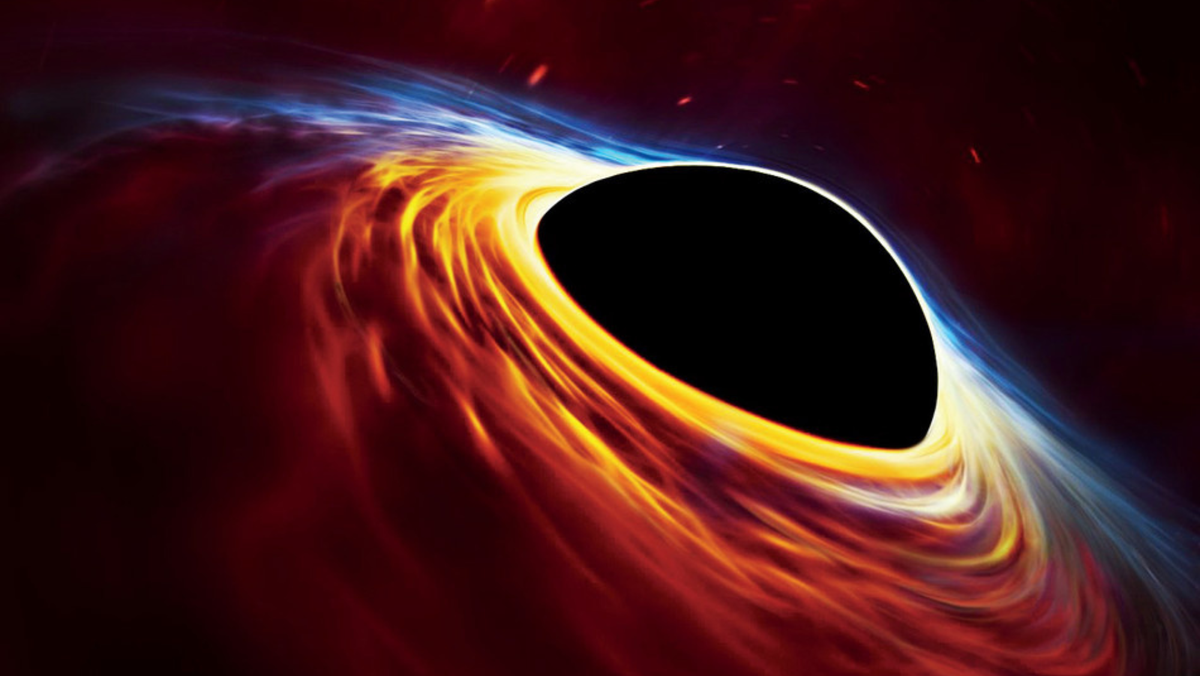Black Holes and the Quran:
The Concept of Black Holes in Modern Science
What Are Black Holes?
Black holes are regions in space where gravity is so strong that nothing, not even light, can escape. They form when massive stars collapse under their own gravity, creating a singularity with immense gravitational pull.
How Do Black Holes Form?
Black holes originate from dying stars that explode in supernovae. If the remaining core is massive enough, it collapses into a black hole, trapping everything within its event horizon.
Types of Black Holes
There are three main types of black holes:
- Stellar Black Holes: Formed from the collapse of massive stars.
- Supermassive Black Holes: Found at the center of galaxies, millions to billions of times more massive than the Sun.
- Intermediate and Primordial Black Holes: Theoretical black holes of varying masses.
Black Holes in the Quran: A Surprising Revelation
Quranic Verses Hinting at Black Holes
Several verses in the Quran allude to celestial objects with characteristics similar to black holes. One such verse is:
“So I swear by the slinkers, the runners, the disappearers.” (Quran 81:15-16) This description intriguingly matches modern scientific understanding of black holes.
The Term “Sijjeen” and Its Implications
The Quran mentions Sijjeen as a place of extreme confinement (Surah Al-Mutaffifin 83:7-9). Some scholars suggest that it might represent a cosmic abyss, potentially linked to black holes.
The Concept of “Tariq”
Another verse states:
“By the heaven and the night-comer! And what can make you know what is the night-comer? It is the piercing star.” (Quran 86:1-3) Some interpretations associate this “piercing star” with the extreme gravitational effects of black holes.
The Event Horizon: A Barrier Similar to Quranic Descriptions
Understanding the Event Horizon
The event horizon is the boundary beyond which nothing can return. This concept is similar to the Quranic descriptions of barriers that souls cannot cross.
“Barzakh”: The Invisible Barrier
The Quran speaks of Barzakh, a barrier that separates two realms (Surah Al-Mu’minun 23:100). This could be metaphorically linked to the event horizon of black holes.
Modern Physics and Quranic Parallels
Physicists propose that black holes could be gateways to other dimensions. Some Islamic scholars compare this idea to Quranic concepts of unseen realms and divine mysteries.
The Role of Light and Darkness in Quranic and Scientific Perspectives
The Quran on Darkness in Space
“And even if We opened to them a gateway into the heaven and they continued ascending through it, they would say, ‘Our eyes have only been dazzled. Rather, we are a people bewitched.'” (Quran 15:14-15) This verse could describe the visual distortions near black holes.
The Absence of Light in Black Holes
Black holes absorb all light, making them completely dark. This matches the Quran’s descriptions of deep cosmic darkness in Surah An-Nur (24:40).
Light Bending and Gravitational Lensing
Modern science confirms that light bends around black holes due to gravitational lensing, a concept reflected in various Quranic verses about cosmic phenomena.
The Quranic Perspective on Celestial Phenomena
- The Quran frequently references the precise order of celestial bodies.
- The idea of the heavens folding (Surah Al-Anbiya 21:104) could symbolize black hole singularities.
- Several verses discuss cosmic catastrophes, potentially hinting at black holes.
- The unseen world (Al-Ghaib) aligns with black holes being invisible yet immensely powerful.
Could Black Holes Be a Path to the Hereafter?
- Some theories propose black holes as bridges to other universes.
- Islamic eschatology discusses unseen realms that could align with black hole mysteries.
- The Quran describes the transition to the afterlife as an irreversible event, like crossing an event horizon.
- The idea of resurrection aligns with black hole theories of information conservation.
Lessons from Black Holes in Islamic Thought
- The power of Allah: Black holes demonstrate the immense power of the Creator.
- The limitations of human knowledge: Science continues to uncover the mysteries hinted at in the Quran.
- The reality of the unseen: Just as black holes are real but invisible, many aspects of faith remain beyond human perception.
- The importance of reflection: The Quran encourages pondering over celestial phenomena as signs of divine wisdom.
Scientific Discoveries Aligning with Quranic Teachings
- Gravitational waves: Mention of cosmic tremors (Surah Al-Zalzalah 99:1-2).
- Time dilation: Quranic descriptions of time varying in different cosmic realms.
- Expanding universe: The Quran states, “We are expanding it” (Surah Adh-Dhariyat 51:47).
- Cosmic folding: Black holes potentially align with the Quranic description of the heavens folding.
Conclusion
The study of black holes through the lens of the Quran offers a fascinating perspective on divine wisdom. The verses describing cosmic mysteries align with modern astrophysical discoveries, reaffirming the depth of Quranic knowledge. Exploring such topics through Muhammadan Quran School can deepen one’s faith and scientific understanding. Whether you’re an adult or a child, enrolling in our online Quran classes for kids and adults allows you to appreciate the Quran’s scientific insights while mastering its recitation and interpretation.


